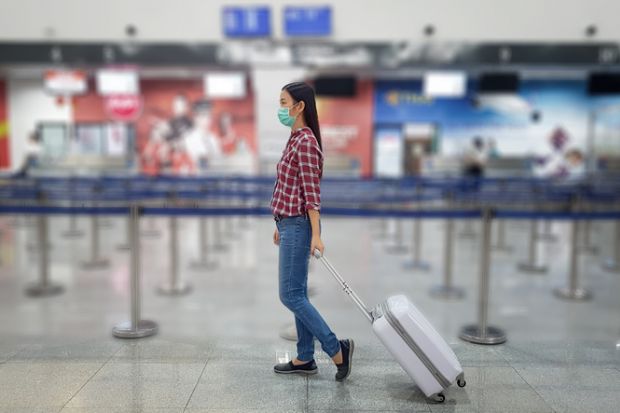Australia’s coronavirus travel ban is seen as increasingly untenable, as the nation closes its doors to foreign students arriving from China – one of the few countries where the epidemic is in decline – while leaving them open to people flying in from places where infections appear set to skyrocket.
Experts were becoming increasingly concerned that government policy settings could be putting Chinese students at risk by encouraging them to transit via countries where the epidemic is yet to peak.
Education leaders were also worried about risks to universities and the broader community, because stringent conditions placed on the entry of the few foreign students allowed in directly from China have not necessarily been applied to those who transit via other countries.
The issue is expected to be discussed at the next meeting of Australia’s Global Reputation Taskforce on 6 March. It comes after a Chinese student at the University of Queensland tested positive for the virus after a two-week trip to Dubai.
Queensland said that the 20-year-old was in a stable condition in a Brisbane hospital. A precautionary test has cleared his flatmate, another student, of infection with the virus.
Current policy settings allow Chinese students to enter Australia after they have spent at least a fortnight outside their home country, supposedly quarantining themselves from their countryfolk to minimise the risk of contracting and spreading the virus. But critics say they are free to socialise with each other during the two-week layover, arguably putting them at greater risk of infection than if they had remained in their carefully regulated homeland.
Moreover, while senior Chinese high school students – who have been exempted from the travel ban – are tested for the coronavirus when they arrive in Australia, that does not appear to be the case for Chinese university students who transit via third countries.
Times Higher Education asked the Australian Border Force (ABF) whether it was routinely screening such visitors when they arrived at Australian airports. It had not responded by publication deadline. Asked a similar question at a 3 March media conference, health minister Greg Hunt referred the questioner to the ABF.
“The situation is fluid,” said International Education Association of Australia chief executive Phil Honeywood, who chairs the Global Reputation Taskforce. “[The] guidelines are likely to change as we go forward.
“There may now be some pressure applied to impose further quarantine. The main issue will be to potentially ensure testing of students as they arrive from third countries.”
Mr Hunt said that the government would continue to implement measures recommended by its medical advisers. But the government has overlooked recommendations from its key group of medical advisers, the Australian Health Protection Principal Committee (AHPPC), that it consider a “a staged return of specified cohorts of Chinese students”.
The AHPPC also offered only lukewarm support for the government’s weekend decision to ban arrivals from Iran, warning that “further travel restrictions may set an unrealistic expectation that such measures are of ongoing value. In general, border measures can no longer prevent importation of Covid-19.”
According to the latest figures from the World Health Organisation (WHO), China accounted for just 7 per cent of new coronavirus infections confirmed on 2 March. Some 55 per cent of new coronavirus fatalities occurred outside China.
Authorities are concerned about countries with suspiciously low reported caseloads, particularly some of China’s large neighbours. The WHO said that just five infections had been reported in India and three in the Philippines. Indonesia reported its first two cases on 2 March, with at least one of these a local transmission, according to the WHO.
University of Sydney sociologist Salvatore Babones said that students, like academics, should be encouraged to stay at home. He said that the way the current travel ban was structured had made importation of the virus “inevitable”, but the “real scandal” was not the risk of exposing Australia to infection.
“The real scandal is going to happen when a student gets sick in a third country and is isolated away from home with no support network, not speaking the language, perhaps without health insurance,” he said.
“We’re encouraging young people to transit via developing countries while they’re potentially sick [and] they’re some other country’s problem. That’s the fundamental moral failing of the travel ban. It’s outsourcing the problem.”
Register to continue
Why register?
- Registration is free and only takes a moment
- Once registered, you can read 3 articles a month
- Sign up for our newsletter
Subscribe
Or subscribe for unlimited access to:
- Unlimited access to news, views, insights & reviews
- Digital editions
- Digital access to THE’s university and college rankings analysis
Already registered or a current subscriber? Login








